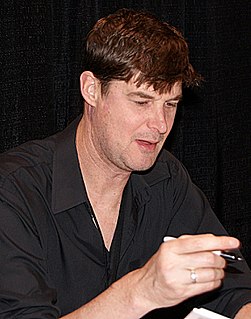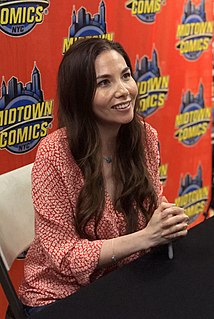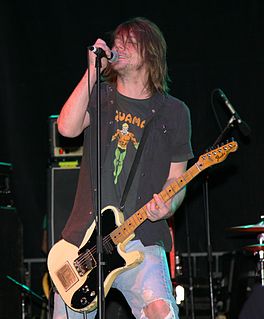A Quote by Seth
When I started out in the eighties, the idea of creating serious comics for adults was pretty laughable to most folks, and for the longest time it was hard to even explain what alternative comics or graphic novels were. Nobody seemed to understand or care. Not so, any longer.
Related Quotes
I've seen a tremendous shift especially in indie comics. I see all these young women who are out there creating. They're making these great web comics. Their graphic novels are getting published. They're making all this wonderful art. They're powerful. There's this vital energy about it that's really, really beautiful that years ago I knew existed but I didn't see so clearly.
Just in terms of being able to be a professional artist, but also it's nice to not have to dread introductions. "What you do for a living?" It used to be easier just to tell people that I was a magazine illustrator than try to explain that I did comics, but not the kind of comics that they were used to, and no, it's not pornography, etc. And now people even of our parents' generation are familiar with the term "graphic novel," which is kind of amazing.
I don't think comics use iconic forms - or they don't have to. But that makes them even more "cool," if I understand the idea. One has to be quite involved to make comics work. Signals have to be decoded on both the verbal and visual level, simultaneously, and the reader must do a lot of cognitive work between panels as well. Comics definitely need an engaged reader.
There are a lot of good comics, no doubt, but as far as the quality of the comics goes, I think what you have is a bunch of situational comics - there are black comics that work only black crowds, gay comics that do only gay crowds, and southern comics that only work down South, and so on with Asian, Latino, Indian, midgets, etc. The previous generation's comics were better because they had to make everybody laugh.
Self-publishing in comics is core to the whole artform. There is no scarlet letter in comics as there still is, to some degree, in prose. As no publisher for a long time would publish serious work in comics, the only way a lot of it came out was because of self-publishing. Many of the greatest works of the medium are self-published.
The graphic novel? I love comics and so, yes. I don't think we talked about that. We weren't influenced necessarily by graphic novels but we certainly, once the screenplay was done, we talked about the idea that you could continue, you could tell back story, you could do things in sort of a graphic novel world just because we kind of like that world.
When I was a kid, back in the '40s, I was a voracious comic book reader. And at that time, there was a lot of patriotism in the comics. They were called things like 'All-American Comics' or 'Star-Spangled Comics' or things like that. I decided to do a logo that was a parody of those comics, with 'American' as the first word.

































